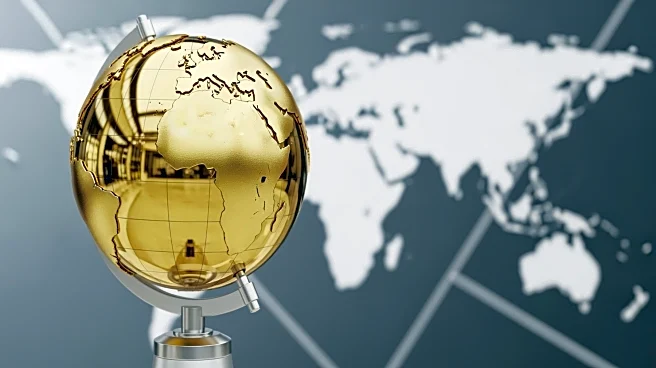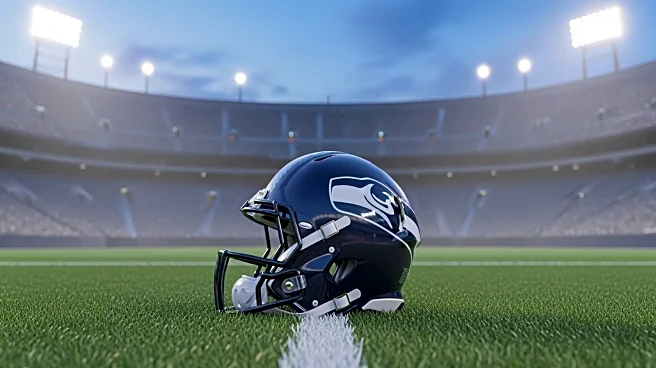What's Happening?
Cristiano Ronaldo, the renowned Portuguese footballer currently playing for Al-Nassr, expressed his views on United States President Donald Trump during an interview with Piers Morgan. Ronaldo described President Trump as one of the individuals capable
of effecting global change. This statement comes amidst Ronaldo's ongoing successful season, where he has scored nine goals and provided two assists in ten matches across various competitions. Ronaldo recently signed a contract extension with Al-Nassr, which will keep him at the Saudi club until the summer of 2027.
Why It's Important?
Ronaldo's comments on President Trump highlight the intersection of sports and politics, illustrating how influential figures in sports can impact public discourse on political matters. As a global icon, Ronaldo's opinions may resonate with his vast fan base, potentially influencing perceptions of President Trump internationally. This interaction underscores the role of athletes in shaping political narratives and the broader societal implications of their statements. It also reflects the ongoing dialogue between sports personalities and political figures, which can affect public opinion and diplomatic relations.
What's Next?
While Ronaldo's remarks may not directly influence political decisions, they could spark discussions among fans and commentators about the role of athletes in political discourse. The sports community and media may further explore the implications of Ronaldo's views, considering the potential impact on his brand and endorsements. Additionally, President Trump's administration might respond to such high-profile endorsements, leveraging them for political capital. The ongoing relationship between sports figures and political leaders will likely continue to evolve, with future interactions potentially shaping public perceptions and diplomatic engagements.
Beyond the Headlines
Ronaldo's comments also raise questions about the ethical responsibilities of athletes when discussing political matters. As public figures, their statements can have significant cultural and social impacts, influencing fans' beliefs and attitudes. This situation highlights the need for athletes to consider the broader consequences of their public endorsements and criticisms, balancing personal opinions with their influence on global audiences. The dialogue between sports and politics may lead to increased scrutiny of athletes' political engagements, prompting discussions on the appropriate boundaries of such interactions.















